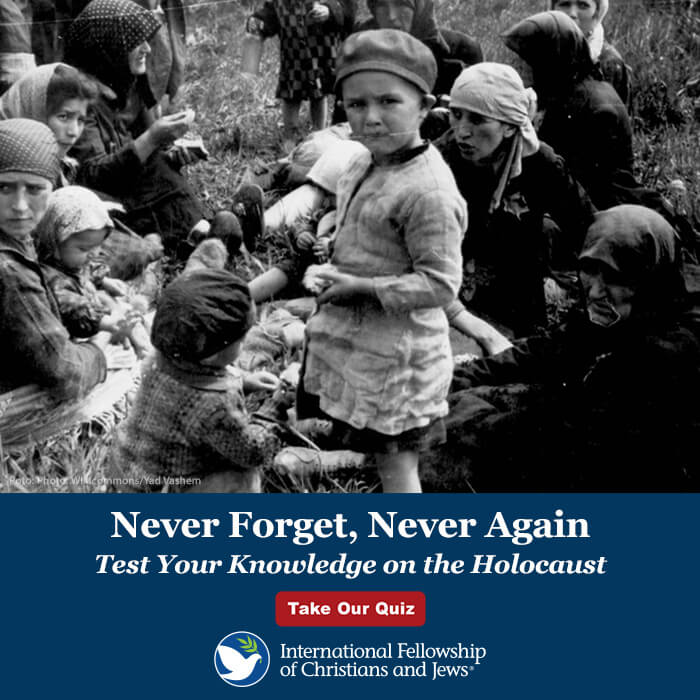Camp Gilead, now repaired, overlooks the Zarqa River valley. Its hills are covered with wheat, and Ghattas’ 2.5 acres facing due west are filled with children ages 7 to 18 during the summer. Organizers hope to raise $250,000 for a three-story, 4,000-square-foot conference center on the property.
But Ghattas and Christians like him must be careful. Muslims are forbidden to change their religion, and people are marked for life with an M or a C on their identity cards. Muslims who are baptized secretly do so without informing their families, who may kill them for dishonoring the tribe.
Yet people here say the harvest is white in Jordan. “This is the key to the Middle East: power evangelism,” Salbashian says. “I believe Benny [Hinn] opened Jordan to the West. He was the first one who embraced loving the Arab and Jew at the same time.”
Hinn has said that evangelicals had “put one arm around the Jews in Israel, and now it was time to put the other arm around the Arabs, since they are God’s children too.” Jordan’s King Abdullah is the member of the royal family who spotted the evangelist’s TV programs and showed them to his father, the late King Hussein. Before he died in 1999, Hussein met with Hinn. His backing was instrumental in encouraging the government Ministry of Tourism not only to allow visits by Hinn and other foreign evangelists, but also to pay for the venues.
When Cerullo held a three-day ministry school in Amman in September 2000, the government hosted him and his 2,000 conferees at the Royal Cultural Center. Public places are not open for religious purposes, especially Christian ones, but everything changes when a Western evangelist shows up with paying tourists in tow.
Sometimes evangelists leave goodies behind, such as the $22,000 Samsung four-wheel drive Cho donated after his May crusade in Amman. The Samsung will help transport tourists at Bethany-Beyond-the-Jordan, the site on the Jordan River where Jordanians believe Jesus was baptized.
The ‘Other Holy Land’
Unlike Israel, Jordan does not have the money or contacts among American Christians to push itself as a destination site. But the Holy Land, Jordanians are quick to say, is on both sides of the river. A year ago, its tourism board retained a Dallas-based Christian public relations firm, A. Larry Ross & Associates, to boost its image among America’s rich mother lode of Christian travelers. Ross, who has represented evangelists Billy Graham and T.D. Jakes, has extensive contacts among evangelicals.
Ross had previously arranged a meeting between Jakes and Akel Biltaji, who was Jordanian minister of tourism until last June. The two men visited Mount Nebo, the famous wind-swept promontory overlooking the Dead Sea, where Moses viewed the promised land.
While visiting the United States last year, Biltaji was invited by Hinn to accompany him during a crusade in Las Vegas. He also put in an appearance in February 2001 at a Jordanian-sponsored reception at the National Religious Broadcasters’ convention in Dallas. Clearly, relationships were being formed.
But in an unusual dinner reception for a group of American clergy and journalists last May, Biltaji was challenged as to why Muslims who converted to Christianity were persecuted in his country. His chilling response: Early Christians were persecuted because they followed Jesus, and present-day converts should expect the same treatment.
All is not paradise in this relatively liberal Islamic state. Jordan has one evangelical seminary, the 150-student Jordan Evangelical Theological Seminary (JETS) founded in 1995. With 270 million people in the Middle East and 19 Arabic-speaking countries, JETS is in a strategic place. President Imad Shehadeh, a Greek Orthodox Palestinian who became born again in the 1970s while a student at the University of California in San Diego, wishes the government allowed the seminary to grow.
“Muslims were once allowed to come,” he says. But he adds that because of the high interest in merely studying Christianity, they now are not allowed to do this. “Muslims could be the majority of students because they are that interested. We could easily have 500 students,” he told Charisma.
The government started cracking down two years ago, first by ejecting seven converts from Islam who were studying at the seminary. Then three students from Iraq, Sudan and Egypt were jailed for several weeks where they slept on concrete with no blankets and were poorly fed. One was beaten so badly he could not move for weeks after leaving prison.
More recently, the government informed JETS that it must approve all appointments for faculty and president, select the seminary’s board of directors, and compel it to hold classes on Sundays. If JETS refuses to accept these dicta, it cannot issue degrees or obtain residential visas for foreign faculty. Visa restrictions are already limiting the foreign student body to Syrians, Iraqis and Egyptians, hardly the broad base the seminary was designed to reach.
“They say persecution is good for the church; well, we’ve had our share of it,” says Shehadeh, who earned his doctorate at Dallas Theological Seminary. “We’re a long way from where we would like to be in terms of human rights.”
Some of the worst opposition, he says, comes from nonevangelicals who petition the government to not accredit the school. By forbidding Muslim evangelism, the government confines Christians to one pen, where they are obliged to steal sheep from one another. This has sewn discord in their ranks.
One of the few gestures of unity among Christians in Jordan was a decision to celebrate their religious holidays on the same day. And the pope’s visit did put the Christian community on the map. “For three days,” said Ghaleb Bader, the Catholic priest who heads the church’s ecclesiastical court in Amman, “Christians in Jordan were at the center of attention for everybody.”
Now is a critical time for Jordan, say all the evangelists who work there. With tourism down since the September 11 terrorist attacks, Jordan’s economy is in a free fall. In addition, the current drought in Israel is a threat to Jordan as well. What would help, Ghattas says, is if Western Christians would pay them a visit.
“We ask Christians to not come here to visit dead stones,” referring to the country’s 30,000 archaeological sites, “but living stones,” referring to Christian believers.
Even Biltaji, the Muslim cabinet member, pleads for visitors: “We’re not begging; we are going even further. We are on our knees asking people to come and see us.”
“Pray for Jordan,” Salbashian says. “Pray that more signs and wonders are released and that Christianity in the Middle East is authentic and not a copy of America.”
Julia Duin, an assistant national editor for The Washington Times, traveled to Jordan in May.
Country with largest percentage Christian population:Cyprus (91.8 percent)
Country with smallest Christian population:Sahara (1,000)
Country with smallest percentage of Christians in population:Algeria (0.1 percent)
Largest denomination:Coptic Orthodox Church, Egypt (86.8 million)
Largest Protestant or independent denomination:Coptic Evangelical Church (300,000)
Country with largest Christian growth over last five years:Armenia (from 76 percent to 83 percent)
Fastest growing denomination or movement:Catholic Church, Oman (35 percent)
Percentage of Pentecostals and charismatics in Christian population:0.8 percent (3 million)
Largest non-Christian population:Muslims (308.9 million)
Most dangerous country for Christians:Sudan
Country with most evangelistic efforts per person:Cyprus
Country with most evangelistic efforts for size of population:Egypt
Country with highest Christian income:Egypt
Country with lowest Christian income: Yemen







Leave a Comment
You must be logged in to post a comment.